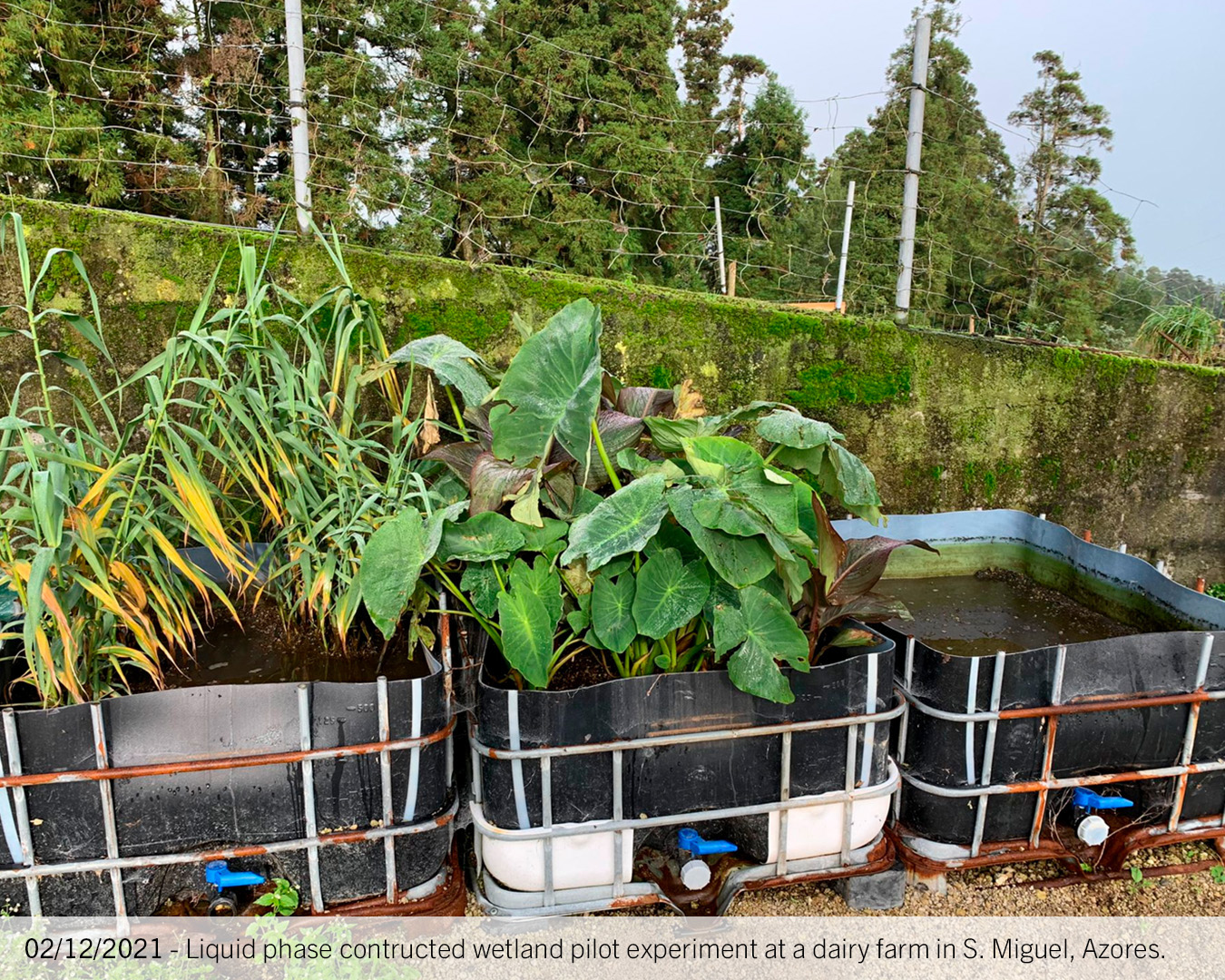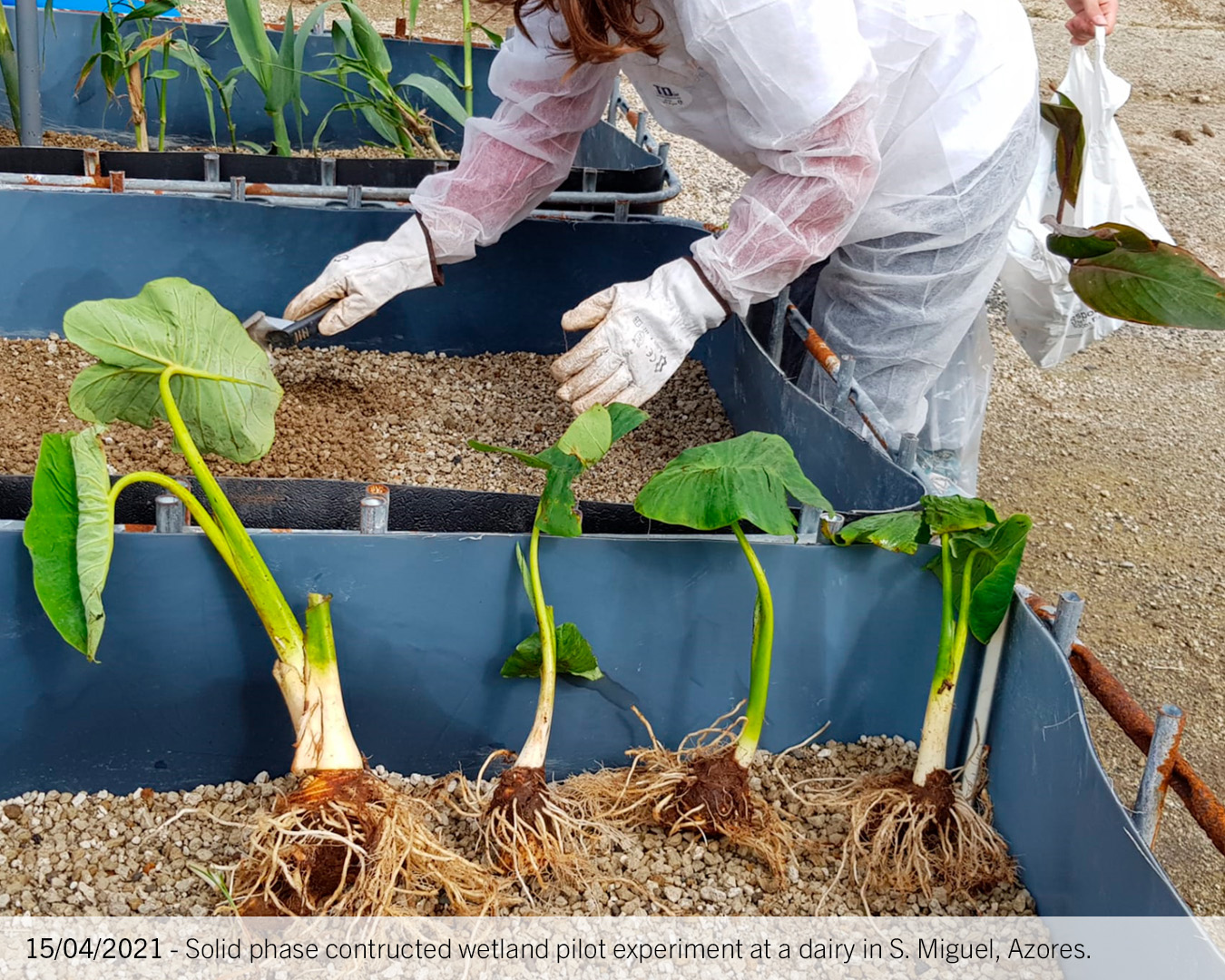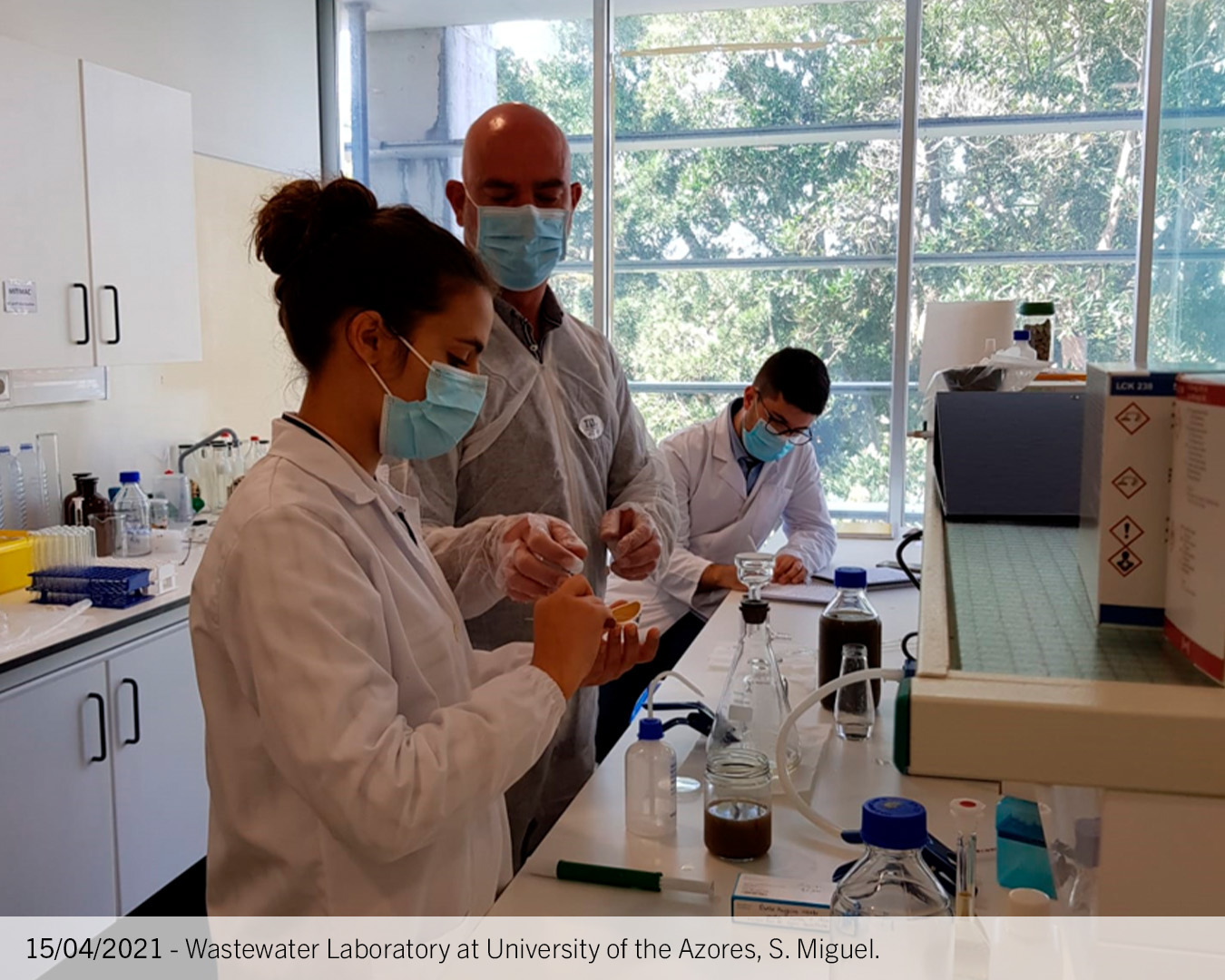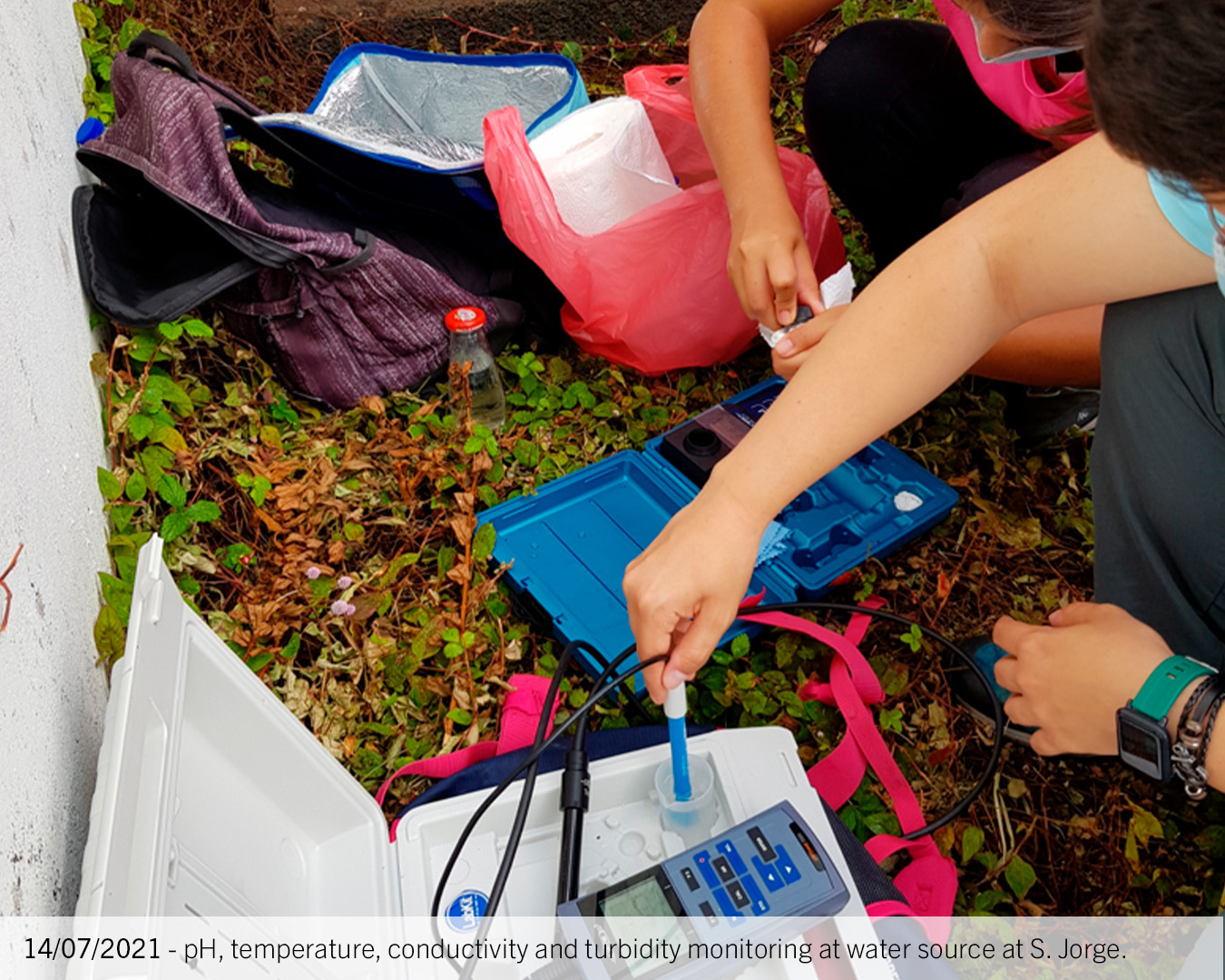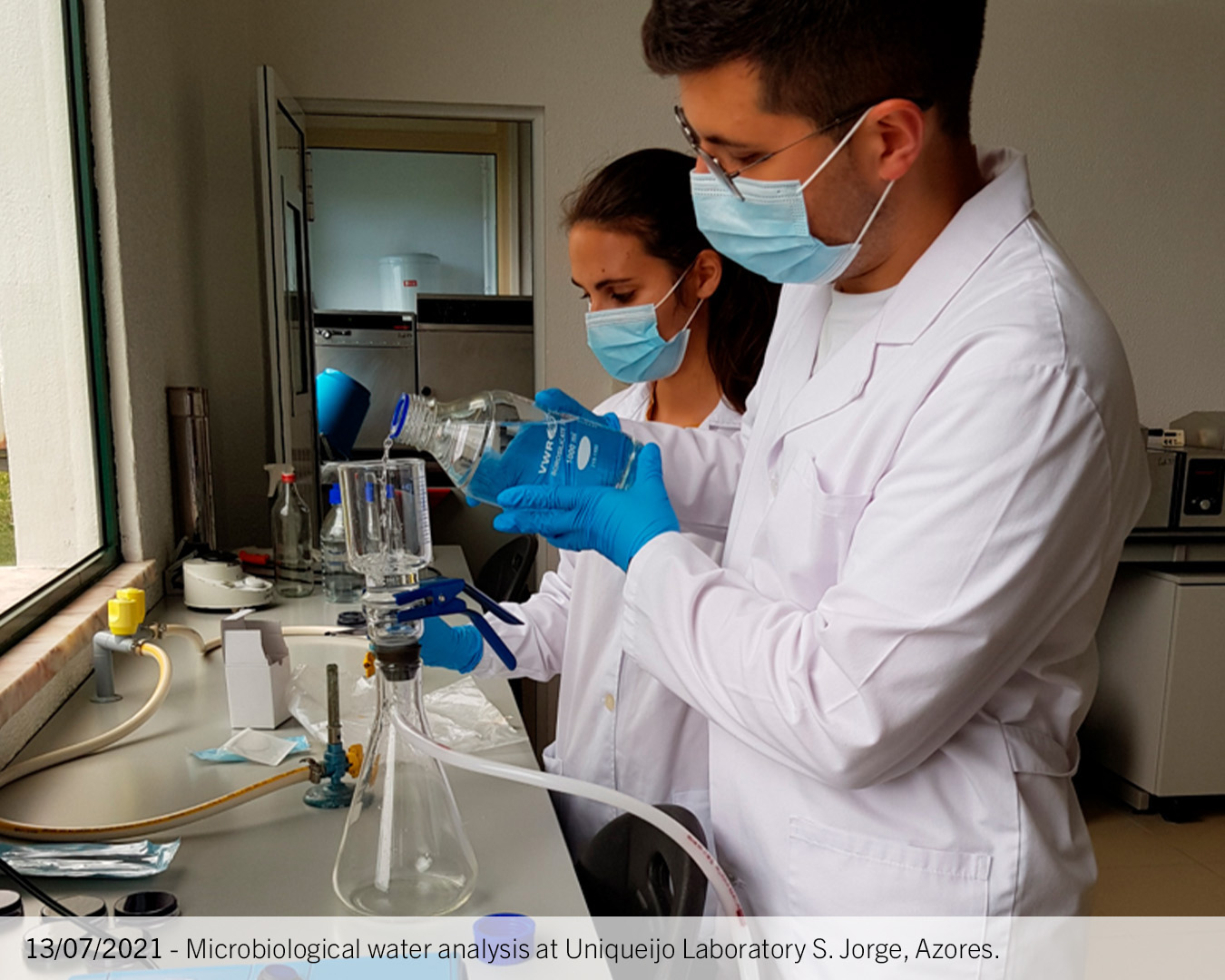
| Acronym: | MITIMAC |
| Cost Center: | 960 |
| Operation Code: | MAC2/1.1a/263 |
| Title: | Mitigating climate change through water cycle innovation using low carbon technologies |
| Start-End: | 01-01-2020 - 31-12-2022 |
| Entidade Beneficiária Principal: | Fundação Gaspar Frutuoso |
| Gestores da FGF: | Vera Cordeiro |
| Responsible Researcher: | Sílvia Alexandra Bettencourt de Sousa de Quadros |
| R&D Units: | IITAA - Instituto de Investigação em Tecnologias Agrárias e do Ambiente |
| Entidade | Montante |
|---|---|
| Total Financing | 99.723,32 € |
| Direção Regional da Ciência e da Tecnologia (15.0 %) | 14.958,50 € |
| Interreg MAC (85.0 %) | 84.764,82 € |
Main Objectives:
The project falls within the thematic areas of “Agriculture, Livestock and Agroindustry” and “Tourism” of RIS3/Azores, designated in the typologies: AGR1, as it will adapt to the local reality, low carbon livestock effluent treatment solutions that contribute to the environmental efficiency of livestock exploitation and preservation of biodiversity; TUR2, insofar as it will contribute to the promotion of the tourist offer (accommodation) that applies principles of environmental sustainability to water management. It will also contribute to improving the Region's internal and external connections, as it will participate with other regions in adapting the methodology for calculating GHG emissions for the various components of the urban water cycle. The application of the methodology to specific cases of the Azores and the comparison with other regions (Madeira and Canary Islands), will help to strengthen the external links of the Region in the sectors of Sustainable Tourism and Livestock.
Project Description:
MITIMAC's scope of action is based on the analysis of the existing interactions between Climate Change-Water-Food Energy. The main recipients of this project are public research organizations, as well as technology centers, government agencies and other entities related to the sector. Among the main actions to be carried out are, among others, the promotion of research and innovation in sustainable energy, energy efficiency and their integration into the water cycle; seeking to optimize the integral cycle of water, in all its stages from an energy point of view. One of the main expected results is not only the improvement of the cycle from an energy point of view, but also the development of a low carbon economy and the realization of a comprehensive cycle of Zero-Net Carbon.


